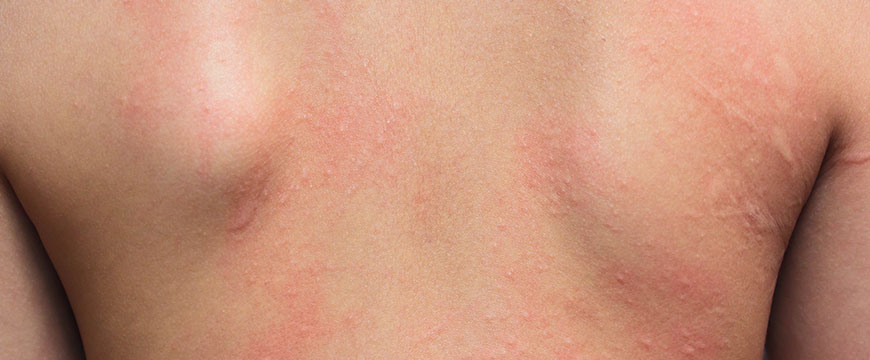
It is a universally-known fact that millions of people around the world have some kind of allergies. These are usually triggered by various factors such as food and beverages, pet dander, and pollen among a few. Allergic reactions can be mild but some can be severe it can be fatal enough for other people. If you are allergic to a specific food or other outdoor elements, it is best to consult an allergy specialist doctor to help you manage your condition.
Allergy triggers can cause allergic reactions that can vary from person to person. One common allergic reaction that afflicts millions of allergy sufferers is hives. This refers to skin welts that are usually red and itchy. It usually appears on the skin a few minutes or hours after getting into contact with an allergen. Hives also come in different sizes and shapes and can last up to 12 hours.
Hives vs. angioedema
Hives are also referred to as urticaria in medical terms. It usually causes itchiness and redness, but in some cases cause stinging or a burning sensation. Hives appear in different parts of the body such as the legs, arms, chest, and face. It can as small as a pen blot to as large as a food plate.
Another condition that is similar to hives is called angioedema. The difference between the two is that the latter develops underneath the skin instead of topical (the skin surface itself) as the former. Unlike urticaria, angioedema also causes swelling around the lip, eyes, feet, hands, and even the genital area, and it lasts longer than urticaria.
There are two types of urticaria: acute and chronic. The former lasts less than six weeks and are usually caused by common triggers such as foods, medications, or insect bites. The latter, on the other hand, lasts more than six weeks and can be hard to determine the exact cause. However, it is said that chronic urticaria and angioedema are caused by hepatitis, thyroid disease, or cancer.
Both urticaria and angioedema can be potentially life-threatening especially if it affects the throat or lungs. In such emergencies, it is best to go to the nearest allergy clinic or contact an allergy doctor immediately.
Causes and symptoms of hives
Hives occur due to an allergic reaction to certain allergens. Among common triggers of hives include:
- Foods such as shellfish, nuts, and eggs among a few
- Medical conditions such as common colds, hepatitis B, influenza, and urinary tract infections (UTI)
- Temperature changes
- Fever
- Dust mites and animal dander
- Plants such as poison ivy and nettles
- Insect bites
While there are many possible allergic triggers, it is most likely hard to pinpoint which of these is the exact cause of hives. Nevertheless, it is important to call an allergist specialist once symptoms appear. Speaking of symptoms, among common signs of hives include:
- Red, itchy welts that can be as small as a dot or as large as a food plate
- The welts occur in batches on certain parts of the body such as the legs, arms, chest, and feet among a few
- Swelling on the skin area with welts
- Sometimes with a stinging or burning sensation
In worse cases, hives can also cause anaphylaxis which can be potentially fatal if not treated immediately. Other symptoms that need immediate medical attention include:
- Feeling light-headed
- Vomiting and nausea
- Breathing difficulties
- Cold and sweaty skin
- Irregular heart beat
If you have the above symptoms, consult an allergy doctor immediately.
Managing and treating urticaria
In these cases, the adage “prevention is better than cure” may be suitable in these cases. As much as possible, identify possible triggers that may cause hives. For instance, you may have to abhor or lessen alcohol consumption or avoiding consumption of certain foods such as nuts or shellfish.
There may be some products that can also trigger hives such as laundry detergents, skin creams, and body soaps. Choose ones that have gentle ingredients, unscented, and paraben-free. Avoid stress as much as possible and make time to relax and unwind even for just a few minutes.
If hives are already present, make yourself as comfortable as possible. Never scratch the affected area and apply cold compress or ice on it to alleviate itching and lessen the redness. Take supplements with Vitamins C and D, and evening primrose oils to lessen the occurrence of hives. However, make sure to consult an allergist doctor first before taking any medications or if the symptoms worsen.
Find an allergy doctor near you
If you have signs of allergies, it is best to consult an allergy physician in Germantown MD immediately. This is to avoid further complications that can worsen your condition. Visit one today!